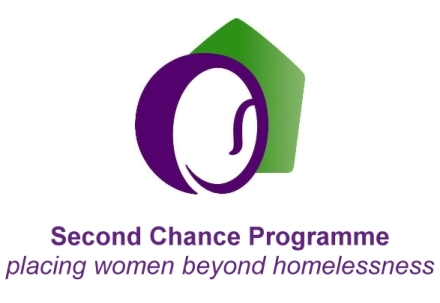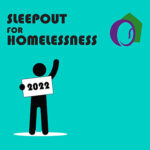
To our wonderful donors, supporters, sponsors, corporate & government partners, and volunteers
We’ve missed holding Second Chance events and having your support at those events.
We have been quiet, however please don’t confuse quiet for inactivity. Our work supporting at-risk women and children has continued unabated.
In fact, demand during the COVID-19 lockdown has been great, and although it seems so many months ago, this year’s headlines have seen some of the most terrible violence against women and families in living memory. These are just the stories we know about. Many women’s stories are unknown except for the shelter and protection they receive at the many refuges and accommodations facilities that your donations to Second Chance support.
In the shifting circumstances of 2020, much has changed. We are operating with our hands tied behind our back as we’ve been unable to host our usual events and activities to raise vital funds.
We’ve included a brief report (completed by Second Chance President Kathleen Noonan) to update you.
We know nearly everyone in Australia has taken a hit with the COVID-19 lockdown. Certainly, many of our supporters and generous businesses have. We understand this.
We always value the support you have all so generously given SCP and never take it for granted.
For the rest of 2020 we are committed to funding the vital projects that make the biggest difference for homeless women and their children – the hands-on, food-on-the-table, safe-roof-over-their-heads projects. We know that they need it now more than ever.
If you are able, any support you can give will go a long way. Every dollar counts.
If you are wondering how you can make a difference to vulnerable women and their children, here are some ways you could help:
- Make a donation via the Second Chance Everyday Hero donation link.
- Spread the word – You can tell others about the work we do for homeless women and their children by sharing the Second Chance Everyday Hero donation link.
- Charity fundraising raffles and auctions – Donation of prizes for raffles or items for fundraising auctions are welcomed all year round.
Many thanks for your continued support.
The Second Chance Committee
PRESIDENT’S REPORT – May 2020
What a strange time to present a President’s Report. A year like no other. No one could foresee such global events as the COVID-19 and subsequent lockdown.
Coming partially out of the hibernation, we at Second Chance, as many charities around Australia, find ourselves in a highly unusual situation. One side of our ledger – the fundraising and events – has ground to a halt, while the other side – funding projects, supporting shelters, writing cheques – has been increasingly in demand.
Going forward, now we know our core business – supporting critical services for homeless and at-risk women and children – will be needed more than at any other time, with government in unprecedented debt, stimulus packages cutting off later this year, businesses going under, unemployment peaking and the economy slowing. Charities are predicting thousands will struggle to cope when supports like JobKeeper, loan deferrals and increased JobSeeker payments end in October.
We know several things
- The people we rely on for support in fundraising – from individuals to small businesses all the way through to universities – are under enormous financial pressure. Traditional fundraising strategies such as events are curtailed.
- This epidemic has impacted women broadly and deeply. The Pink Recession is what is being predicted. Australia’s casual jobs are overwhelmingly held by women, so less likely to receive govt JobKeeper. The lower-paid jobs lost – in hospitality, in arts, freelancers – are overwhelmingly filled by women. So, the key groups at-risk – women over 55, young women coming out of care, indigenous women looking for jobs, women with mental health or substance challenges – are even more vulnerable.
- DVConnect predicts another spike of calls about Family Violence now that lockdown is easing and the perpetrators leaving the house for work.
A strange year
In February this year, a country shocked by the 2020 Bushfires, was then left reeling by the tragic murder of Hannah Clarke and her children. It seemed like a defining moment – that much would change with how this country deals with family violence. But the news cycle and national attention was soon grabbed by an international threat of COVID-19.
The family tragedy seems so long ago. One of the more surprising outcomes was the data revealing that in the weeks after, a big jump – 25% – in the number of calls to domestic violence services by male perpetrators seeking help. When media covered the details of the lead-up of control and coercion used by the killer, they recognised the disturbing red flags. A significant number of men called saying, “I don’t want to be that guy.’’’
Then, with the COVID-19 lockdown there was another alarming surge in reports, as pressure mounted in isolation. By April 1, at DV services throughout Australia, there came a surge in self-referred calls from men, as existing pressure from restrictions to movement, plus mass job losses and financial stress, started to bite. These calls from men acting proactively – seeking help for present situation or because they fear they were about to be violent, must be seen as a sign of improved self-awareness. Surely a sign that DV awareness and how to seek help is working.
Women in Regional Qld
Although most of our projects are centred here in SE Queensland, we have always supported at-risk women in regional centres. There is startling new research has shown that one in 8 women living on low to moderate incomes in regional Australia has been homeless in the past 5 years. The Women’s Housing Needs in Regional Australia report is the first national study into women’s access to safe, affordable housing outside Australia’s capital cities. The YWCA said the research highlighted the gross inadequacy of existing stock to meet demand and critical need for significant investment. This is of no surprise to Second Chance.
We have been and continue to be part of long-running campaign for law changes concerning No-Income Women; and Home Stretch which pushes for state care to be extended from aged 18 to 21; and lobbying politicians for increased affordable housing stocks. A significant infrastructure project for Australia post-COVID should be major investment in affordable housing. It would be a win-win. Our advocacy and lobbying must continue.
Sitting here in May 2020, there are a great many unknowns. Yet there are some things we do know. There will be little fat in the coming Government budgets. That lobbying for investment in major social housing infrastructure is paramount. That demand on our services will surge. That fundraising will be tough, however we need creative ways to raise funds in a new normal.
So, we have much work to do.
Kathleen Noonan
President
Second Chance Programme


 Second Chance Programme is a charitable organisation set up in 2001 to raise awareness of the plight of homeless women and their children.
Second Chance Programme is a charitable organisation set up in 2001 to raise awareness of the plight of homeless women and their children. 

